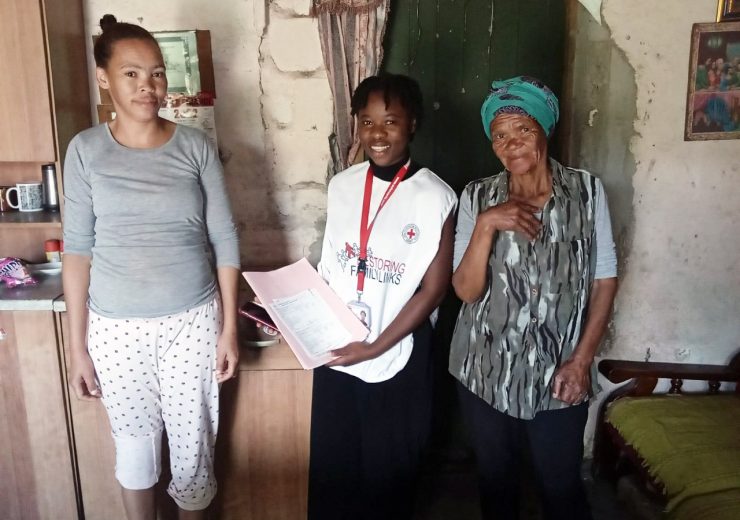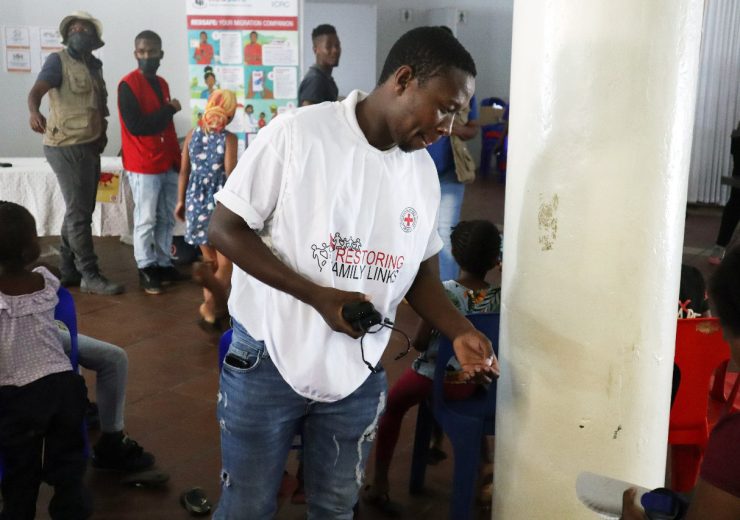Disaster Management and Climate Change
Climate Change
SARCS has actively integrated climate change (CC) and adaptation into its programmes and projects, with a focus on gendered vulnerabilities. Initiatives supported climate-resilient agriculture and diversified local economies, enhancing the capacity of community-led projects to withstand environmental stress. In KwaZulu Natal, SARCS implemented climate-smart responses to flooding, including drilling 10 boreholes equipped with solar pumps and drip irrigation systems, promoting the sustainable use of water and renewable energy. Furthermore, SARCS mainstreamed environmentally sustainable practices across its operations, aligning with mitigation goals. A total of 2,498 individuals (1,554 women, 944 men) participated in advocacy for inclusive climate and environmental policy-making, ensuring the involvement of vulnerable groups. These actions aim to build resilient communities, promote local stewardship of natural resources, and embed climate considerations into broader development planning. Through partnerships and community-led action, SARCS positions climate adaptation not only as an environmental issue but as a social justice imperative.

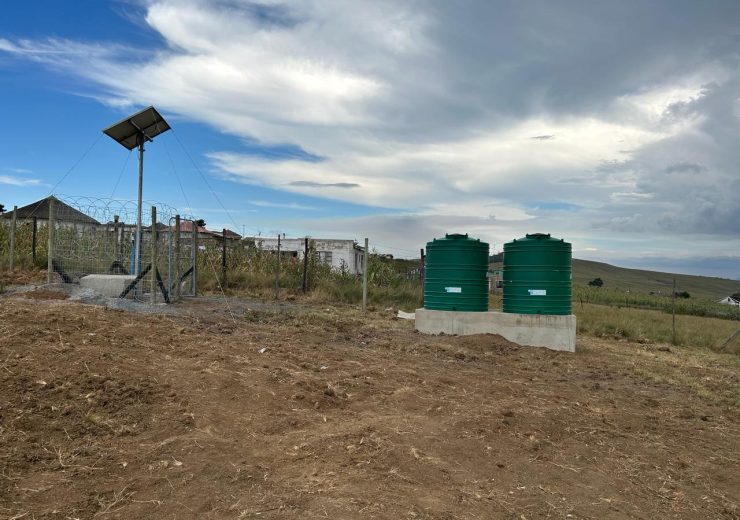
Disaster Management
SARCS’s disaster management programme focuses on reducing community vulnerability to natural and human-made hazards through an efficient Red Cross-led disaster system and improved coordination with authorities. This approach encompasses preparedness, response, and recovery, with a strong emphasis on Community Engagement and Accountability (CEA). Over 847,000 individuals (532,506 females and 314,523 males) benefited from targeted disaster risk reduction activities. Efforts included stakeholder training, technical support for provincial teams, and strengthened collaboration at local levels. SARCS also promoted leadership in disaster law and built community capacity to manage evolving risks and crises. Its holistic strategy ensures affected communities receive timely, appropriate aid while enhancing local capacities to reduce future risks. By centring local vulnerabilities and integrating indigenous knowledge, SARCS strengthens both institutional frameworks and grassroots resilience, demonstrating a proactive model for national disaster preparedness and response.
Disaster Risk Reduction
SARCS invested in Disaster Risk Reduction (DRR) by enhancing early warning systems and promoting community-level risk mitigation strategies. Recognising the importance of preparedness, SARCS equipped communities with the tools to prevent or minimise disaster impacts. Key interventions included the distribution of mitigation assets and the installation of smoke detectors in KwaZulu Natal’s informal settlements, protecting over 600 residents (444 women and 163 men) from structural fires. These proactive initiatives not only save lives but also reduce economic and infrastructural losses. Through partnerships, SARCS reinforced the need to embed disaster planning in development strategies, promoting community ownership and sustainability. The organisation also supported tree planting initiatives—aligned with Pan African climate goals—to promote green responses and environmental stewardship, with 2,500 fruit trees planted across provinces. These efforts highlight the organisation’s commitment to reducing disaster exposure through environmental action and inclusive community engagement.
Tree Planting and Care
Tree planting and care forms part of the Pan African initiatives related to addressing CC which the SARCS continues to promote and encourage communities to adopt green response. The SARCS collaborated with local communities, corporates (Old Mutual and Nedbank) schools, and other community organisations in tree planting and care initiatives. Local communities took lead in this regard to promote ownership and sustainability of in the tree planting interventions. A total of 2 500 trees were planted in different provinces and most of the trees were fruit trees which entice communities to intensify tree planting initiatives due to both environmental and nutritional benefit
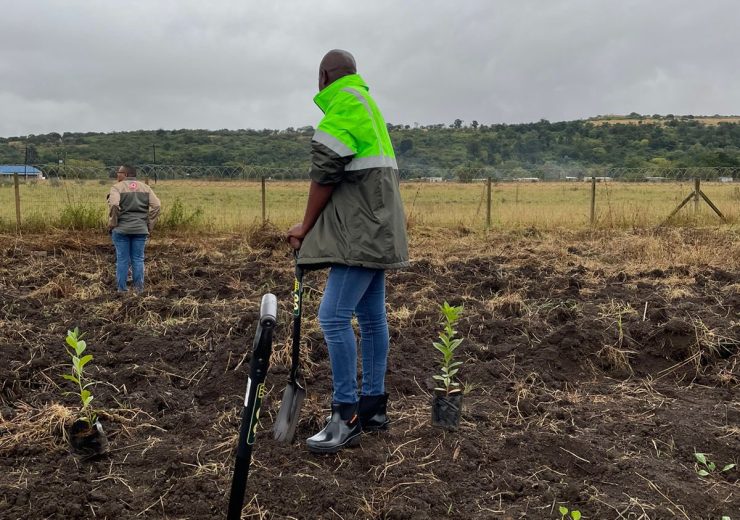
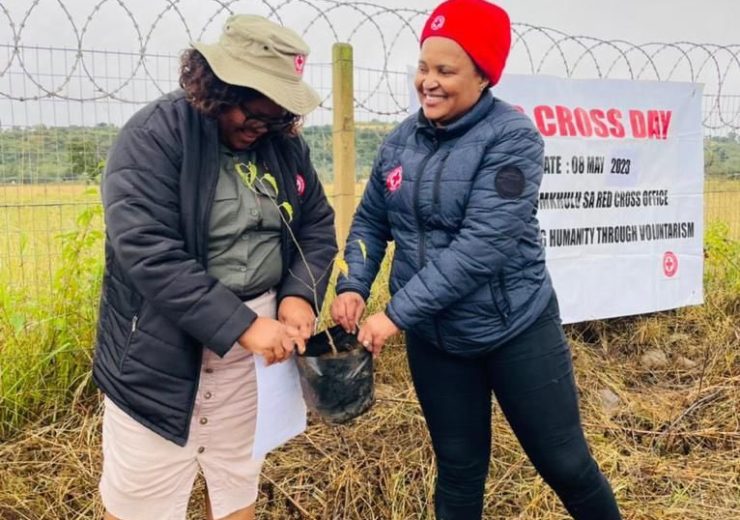
Disaster Preparedness and Response
SARCS carried out extensive preparedness efforts to ensure at-risk communities could access timely risk information and take action to reduce their vulnerability. Activities included early warning dissemination, contingency planning, and the distribution of preparedness assets. In 2023, a major capacity-building effort trained 681 volunteers and staff across all nine provinces on the Safer Access Framework to ensure operational safety. Additionally, 1,539 individuals (785 females, 754 males) participated in contingency planning sessions, while disaster management capacity-building was conducted with local structures such as Disaster Management Action Groups (DMAGs). SARCS promoted the use of indigenous knowledge systems alongside conventional approaches to strengthen early warning mechanisms. As a result of these interventions, over 100,000 people (79,212 females and 21,201 males) were reached. These initiatives aimed to localise disaster preparedness and improve rapid response capabilities, ensuring SARCS teams and communities are equipped to act effectively and safely during emergencies.
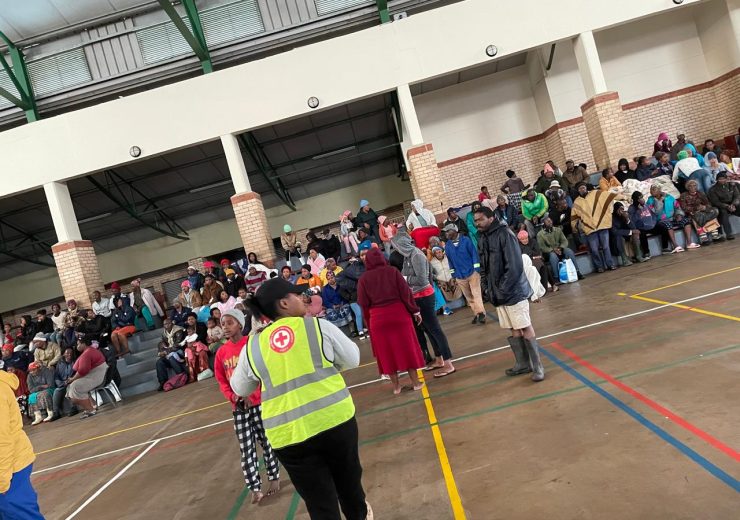
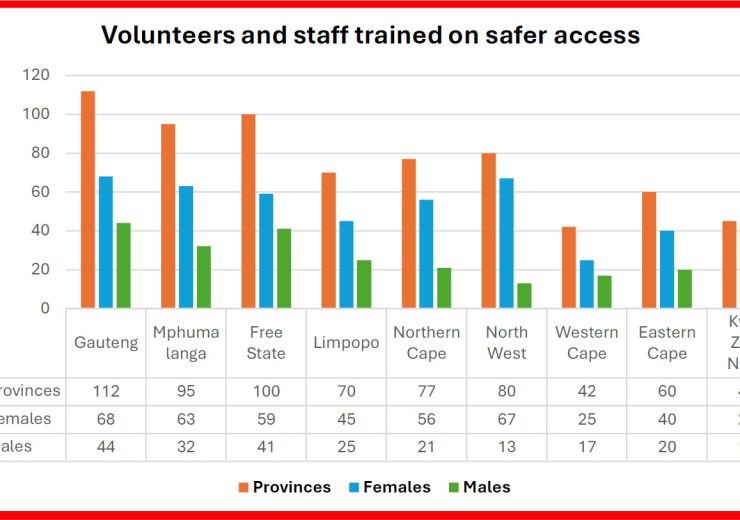
Disaster Response and Recovery
During the reporting period, SARCS responded to multiple natural and man-made disasters including floods, storm surges, droughts, and fires across all nine provinces. Relief efforts were coordinated with government and humanitarian actors, ensuring efficient service delivery and avoiding duplication. Support included over 590,000 hot meals, 114,068 individuals (80,400 females, 33,668 males) receiving essential relief (food parcels, blankets, hygiene kits, clothing, cash vouchers), and 5,045 individuals (3,223 females, 1,822 males) supported with hygiene kits. Through the IFRC’s Disaster Relief Emergency Fund (DREF), SARCS accessed R28.7 million for disaster response. In alignment with global humanitarian commitments, SARCS expanded the use of Cash and Voucher Assistance (CVA), promoting beneficiary autonomy and flexibility in crisis recovery. This approach empowers individuals to meet their unique needs and supports sustainable recovery. SARCS’s response model focuses on timeliness, community relevance, and coordination, contributing to recovery and resilience-building across South Africa.
Protection of Family Links (PFL)
SARCS’s Protection of Family Links (PFL) programme supports displaced and vulnerable individuals by reuniting families and strengthening social cohesion in the context of migration. With high levels of migration, particularly in Gauteng, Limpopo, and the Eastern Cape, SARCS provided essential services such as tracing, family reunification, and legal support, including help with South African Home Affairs online applications. Social cohesion dialogues were facilitated between migrant and host communities, promoting peaceful coexistence and collaborative livelihood development. The town of Musina and the Eastern Cape’s Maluti area were key focus regions due to increased cross-border movement. SARCS, with support from partners like the Australian Red Cross, piloted a migration and livelihoods programme in Limpopo to address economic vulnerabilities and social protection gaps. Further collaboration with ICRC and local shelters ensured displaced people received PFL services, particularly during crises. These holistic interventions underscore SARCS’s commitment to upholding dignity, rebuilding connections, and promoting integration for those affected by displacement and migration.
